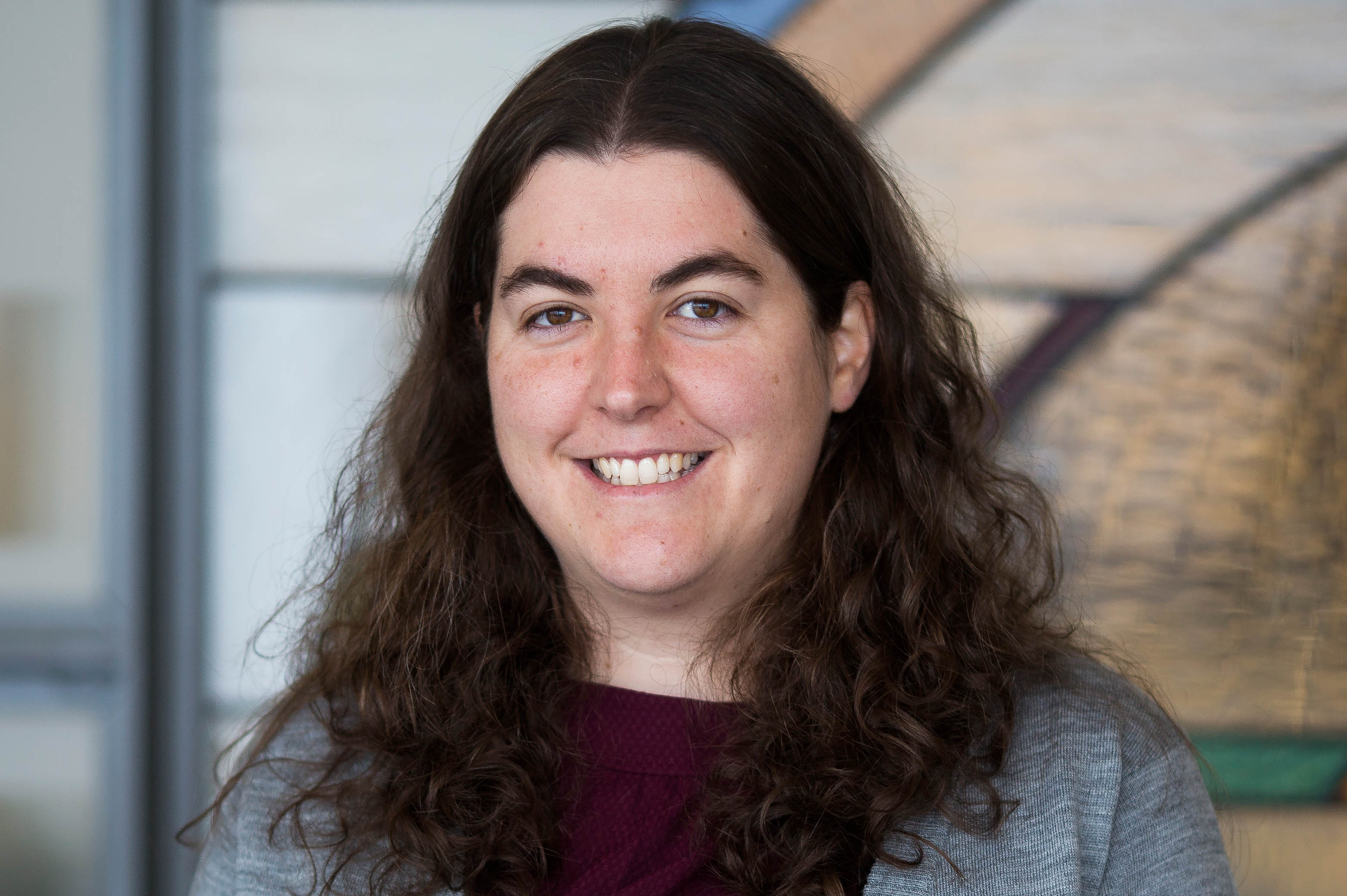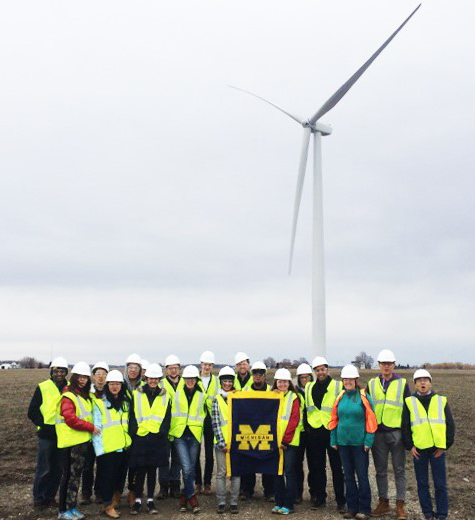Johanna Mathieu receives NSF CAREER Award to help build a smarter, more sustainable grid
Mathieu will develop optimization and control methods to leverage the flexibility available from distributed energy resources.

 Enlarge
Enlarge
Professor Johanna Mathieu, assistant professor in Electrical Engineering and Computer Science, received an NSF CAREER award to ensure the reliability of electric power systems that rely heavily on sustainable energy sources. The project is entitled “Stochastic Capacity Scheduling and Control of Distributed Energy Storage Enabling Stacked Services.”
Since the grid has very little storage, electricity generation levels must be constantly adjusted to meet consumer demand. This is difficult with renewable energy sources such as wind and solar because the power that these resources generate fluctuates. Fortunately, there are opportunities for exploiting the flexibility in existing demand-side resources in order to provide consumers with reliable electricity that comes from both sustainable and traditional sources.
Mathieu plans to develop new optimization and control methods to leverage the flexibility available from distributed energy resources (DERs), such as energy storage and flexible loads.
For example, as battery costs have decreased, more small-scale distributed batteries have been connected to the network to provide local services. These resources could be aggregated and used to provide grid services when not needed for their local service.
Flexible loads, such as electric vehicles and air conditioners, can also be coordinated to behave like storage, providing multiple services simultaneously. Stacking services improves storage utilization and economics in addition to the ability of the grid to accommodate more renewables, says Mathieu.
“The research will provide strategies to harness existing and underutilized energy storage capacity to provide services that improve grid reliability and operational performance,” said Mathieu. “It will also facilitate renewables integration, improving energy security and environmental/health impacts. The findings are expected to impact energy policy, specifically the regulations surrounding stacked services.”
Mathieu takes a global perspective in her approach to electric power and sustainable energy systems, stressing that most future energy growth is expected to occur in developing countries. Having served as a Peace Corps volunteer in Tanzania (teaching high school math and physics) and conducting her M.S. thesis research in Bangladesh, she understands first-hand the importance of working within a specific culture to produce positive change. Specifically, she plans to enhance an existing connection between the University of Michigan and the University of Liberia, developed as part of a USAID-funded program.

 Enlarge
Enlarge
The CAREER project is a reflection of Mathieu’s overall research, which is focused on ways to reduce the environmental impact, cost, and inefficiency of electric power systems through new operational and control strategies. She is particularly interested in developing new methods to actively engage distributed flexible resources such as energy storage, electric loads, and distributed renewable resources in power system operation. This is especially important in power systems with high penetrations of intermittent renewable energy resources such as wind and solar.
Mathieu received her PhD from the University of California, Berkeley and was a postdoctoral researcher at ETH Zurich in the Power Systems Laboratory.
Since coming to Michigan in 2014, she has developed two new graduate courses: “Power Systems Markets and Optimization, and “Analysis of Electric Power Distribution Systems and Loads,” and taught the senior-level courses, “Power System Design and Operation” and “Grid Integration of Alternative Energy Sources.”
She is a member of the Michigan Power & Energy Laboratory and affiliated with the University of Michigan Energy Institute.
Additional Information
The Faculty Early Career Development (CAREER) Program is a Foundation-wide activity that offers the National Science Foundation’s most prestigious awards in support of early-career faculty who have the potential to serve as academic role models in research and education and to lead advances in the mission of their department or organization.
 MENU
MENU 
